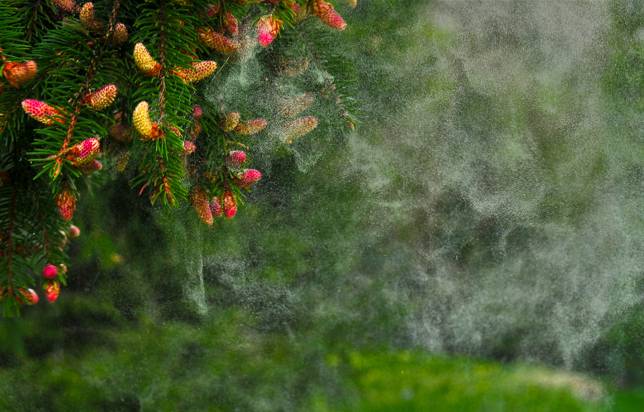
January 7, 2020
Flu season is upon us again and over the past couple of years, I have really perfected my flu-fighting skills. Prior to 2017 flu didn’t really affect our family and I was able to ward off whatever bug found its way into our home easily and without much thought. Then Junior High hit. I thought Kindergarten germs were bad, but they have nothing on the kind of germs teenagers play with.
The 2017-2018 flu season was classified as high severity and 16 weeks of the season were at or above the epidemic threshold (CDC, 2020). It was an unusually long, severe and deadly season and it took my family down, all four of us. And I said never again.
Enter the 2018-2019 flu season. I was half right. The season was only moderately severe, though it did last longer than usual, ranking as the longest in a decade (CDC, 2020). And again my teenager brought home the flu and shared it with her father. I went code red and began throwing all I had at it and managed to keep myself and son from getting sick, but I realized I needed a better plan, one that included more prevention.
As I write we are in the midst of yet another flu season. It is widespread and has high activity in most of the country, though our local area is considered moderate. The Davis household is in the clear so far, but school just started back from the holiday break, so we will see what funk the teenager brings home. In the meantime, I have my weapons at the ready.
Traditional Chinese Medicine (TCM)
Being acupuncturist means that acupuncture is one of my main go-to weapons against the flu and research has shown it to be effective (Heo, JS., Yang, S., Lee, J., Kang, J., Sun, S. Cho, J., 2016 ). But what else can you do if you aren’t lucky enough to have a live-in acupuncturist?The answer is herbs and supplements. Patients receiving TCM care have shown a significantly reduced time to defervescence (fancy word for no fever) as well as a reduced time of viral shedding (contagious period) ( Li, J., Wang, r., Guo, W., Li, J., 2016).
My medicine cabinet is bursting with Traditional Chinese Medicine (TCM) patent formulas and nutritional supplements for various ailments, and compliance among my tribe is pretty good, even with the youngest. I always have on hand formulas that are good for stomach upset, colds and flu, or as we like to refer to them, wind-cold or wind heat. There also may be a bit of damp thrown in for good measure or some rebellious Qi, but primary difference is whether chills or fever is more predominant. I keep on hand a formula for each, plus something for when you've been exposed (like when the teen has brought something icky home), and something for stomach bugs as well because kids are particularly good at picking those up.
Supplements
Colostrum
I'm a big believer in prevention. Choosing to get the flu vaccine is a personal decision between you and your MD, but there are things you can do to help keep yourself and family healthy even if you forgo the vaccine or if the vaccine isn't a good fit for the prevalent bug. A small study from 2007 showed that people who took 900 mg of colostrum (the early first fluid prior to milk that "exerts anti-inflammatory and anti-infective functions, promotes immune system formation and supports organ development” (Bardanzellu, F., Fanos, V., & Reali, A., 2017), had 3 times fewer days of flu than even the group that were vaccinated (Cesarone, M., Belcaro, G., Renso, A., Dugall, M., Cacchio, M., Ruffini, I., & Vinciguerra, G., 20007). Pre-milk does a body good!
Vitamin D
Then there is vitamin D. This vitamin, which is actually a hormone precursor, has been in the news quite a bit in the last few years with reports that it can fix everything from seasonal affective disorder to the immune system. The immune system part is what we are interested in. A study on high dose vitamin D supplementation; in this case, 1200 iu, has shown that fewer people contracted flu, and that if they did they had a rapid decrease in symptoms, and viral load, and a swifter recovery ( Zhou, J., Du, J., Huang, L., Wang, Y., Shi Y., Lin, H., 2018).
Probiotics
You know what I love about the word "probiotic"? It literally means for life. I don't know about you, but I like the idea of something that is for life and these little buggers support life on so many different levels they probably need their own post. And when we are talking about flu, well they do that too. Probiotics support the immune system and studies have shown that they can enhance the effectiveness of vaccines (Curtis & Zimmerman, 2018). I like to cover all my bases and use a probiotic that has multiple strains.
Essential oils
Essential oils are ubiquitous. You find them in just about any store and people use them for everything from nice smell to headaches and housecleaning. They have also been shown to be another good weapon against cold, cough, and flu. Most essential oil companies have a blend that is meant to target infectious viruses and bacteria, and for good reasson. A study done in 2016 showed that 11 of 62 oils studied showed anti-influenza activity, with marjoram, clary sage, and anise being the most effective (Choi, HJ., 2016).
Summary *
The number one thing to keep in mind, and I can't stress this enough, is take quick action! See your acupuncturist quickly after exposure, or at the FIRST sign of illness, though if you are more than a day or two in they may not want you to come in and contaminate the office since you will be shedding the virus. Use preventatives and hit hard at the first symptom. All this can still help if you do end up sick, but its better to ward the ick off in the first place.
At the beginning of cold and flu season (September-ish) ask your acupuncturist to put together a “winter wellness kit”:
- Prevention/Early Intervention
- Immune enhancing essential oil
- TCM formula for prevention (after exposure)
- Colostrum
- Vitamin D
- Probiotic
- Other - your practitioner may have something else up her sleve
- Treatment
- TCM Formula for Wind-Heat
- TCM formula for Wind-Cold
- TCM formula for tummy troubles
- Because I have kids I also like to keep a formula on hand that is helpful in cases with a sore throat and/or swollen glands.
* Please see our disclaimer
References
2009 H1N1 Pandemic (H1N1pdm09 virus). (2019, June 11). Retrieved from https://www.cdc.gov/flu/pandemic-resources/2009-h1n1-pandemic.html
Cesarone, M. R., Belcaro, G., Renzo, A. D., Dugall, M., Cacchio, M., Ruffini, I., . . . Vinciguerra, G. (2007). Prevention of Influenza Episodes With Colostrum Compared With Vaccination in Healthy and High-Risk Cardiovascular Subjects. Clinical and Applied Thrombosis/Hemostasis, 13(2), 130-136. doi:10.1177/1076029606295957
Choi, H. (2018). Chemical Constituents of Essential Oils Possessing Anti-Influenza A/WS/33 Virus Activity. Osong Public Health and Research Perspectives, 9(6), 348-353. doi:10.24171/j.phrp.2018.9.6.09
Frequently Asked Influenza (Flu) Questions: 2019-2020 Season. (2019, December 27). Retrieved from https://www.cdc.gov/flu/season/faq-flu-season-2019-2020.htm
Heo, J., Yang, S., Lim, S., Lee, J., Kang, J., Sun, S., . . . Cho, J. (2016). A manual acupuncture treatment attenuates common cold and its symptoms: A case series report from South Korea. Journal of Traditional Chinese Medicine, 36(6), 724-729. doi:10.1016/s0254-6272(17)30006-7
Li, J., Wang, R., Guo, W., & Li, J. (2016). Efficacy and safety of traditional Chinese medicine for the treatment of influenza A (H1N1): A meta-analysis. Journal of the Chinese Medical Association, 79(5), 281-291. doi:10.1016/j.jcma.2015.10.009
Zimmermann, P., & Curtis, N. (2018). The influence of probiotics on vaccine responses – A systematic review. Vaccine, 36(2), 207-213. doi:10.1016/j.vaccine.2017.08.069
“Omics” in Human Colostrum and Mature Milk: Looking to Old Data with New Eyes. (2017). Nutrients, 9(8), 843. doi:10.3390/nu9080843



 RSS Feed
RSS Feed